The 12 Most Beautiful Animals of Costa Rica
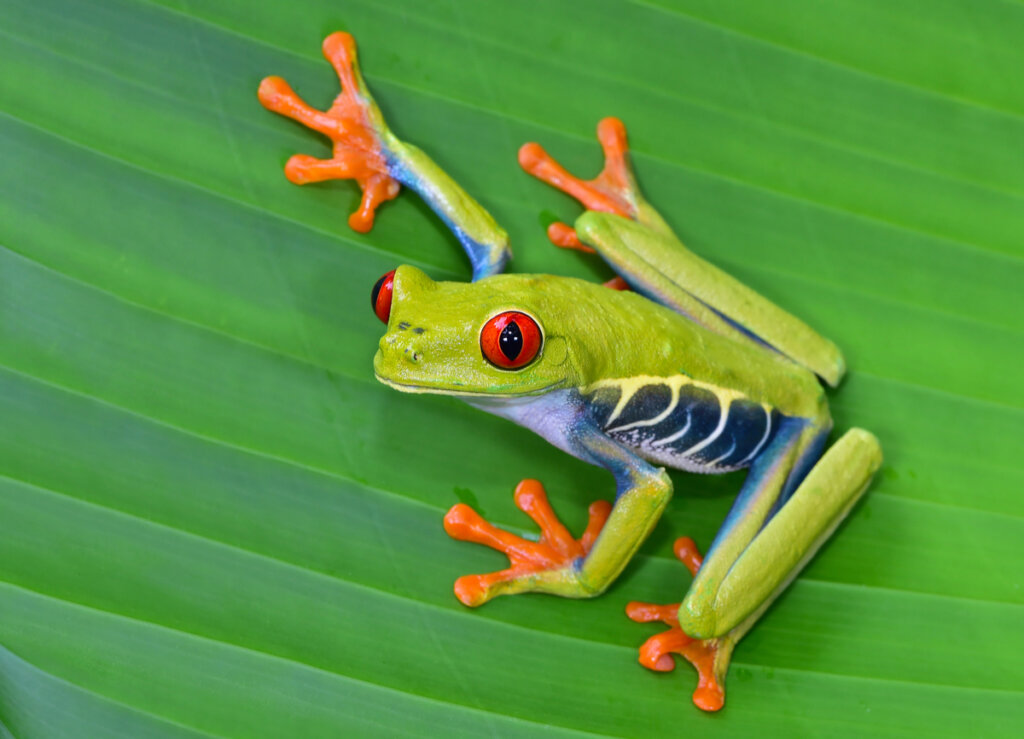
There are more than 500,000 species of fauna and flora in Costa Rica, which places it among the 20 most biodiverse countries in the world. If you have the opportunity to travel there and do some tourism (or if you’re a resident), in this article you can see the 12 most beautiful animals of Costa Rica.
25% of the national territory is protected: Costa Rica has 32 national parks, 51 wildlife refuges, 13 forest reserves, and 8 biological reserves. However, you’ll find incredible animals in any part of the country, if you keep your eyes open.
The 12 most beautiful animals of Costa Rica
Apart from the more obvious explosions of color that macaws create when they take flight, there are animals that surprise even if, at first, they don’t seem so striking. This is the case with the ones you’ll find below, so don’t miss them.
1. Tapir (Tapirus terrestris)
This is the largest land mammal in South America. Tapirs can weigh up to 300 kilograms and sometimes exceed 30 years of age. They feed mainly on fruits, leaves, and branches.
Tapirs play an important role in seed dispersal in the dry deciduous and tropical evergreen forests of Costa Rica.
Their most striking feature is the small proboscis they have, which they use to breathe while swimming. When in danger, tapirs run to the water and hide in it thanks to this special adaptation.
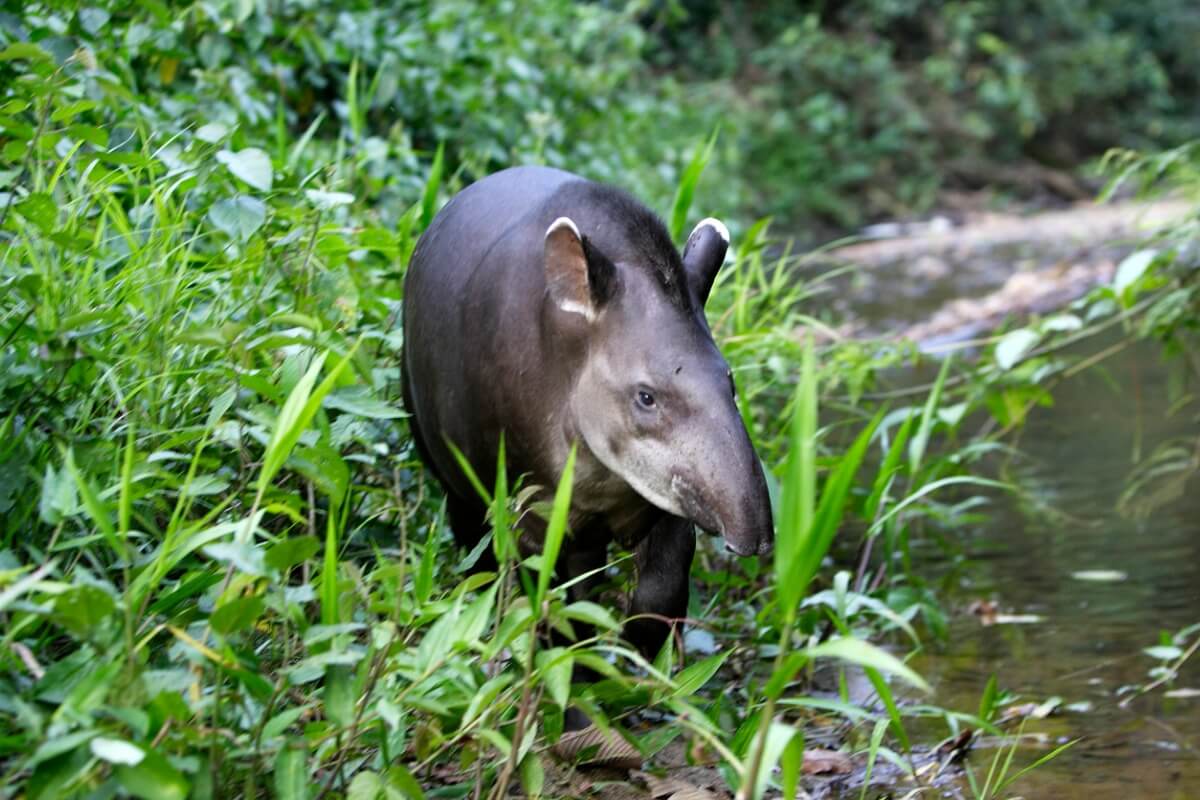
2. Coati (Nasua Narica)
The coati lives in dry and warm forests, as well as in colder mountainous areas. These mammals are omnivorous animals that live in groups in the treetops. In fact, their legs have a very curious adaptation: they can turn almost 180 degrees, which allows them to climb down the trunk of a tree upside down. This is a great help in watching for predators.
If cats had this advantage, they would never get stuck in the treetops.
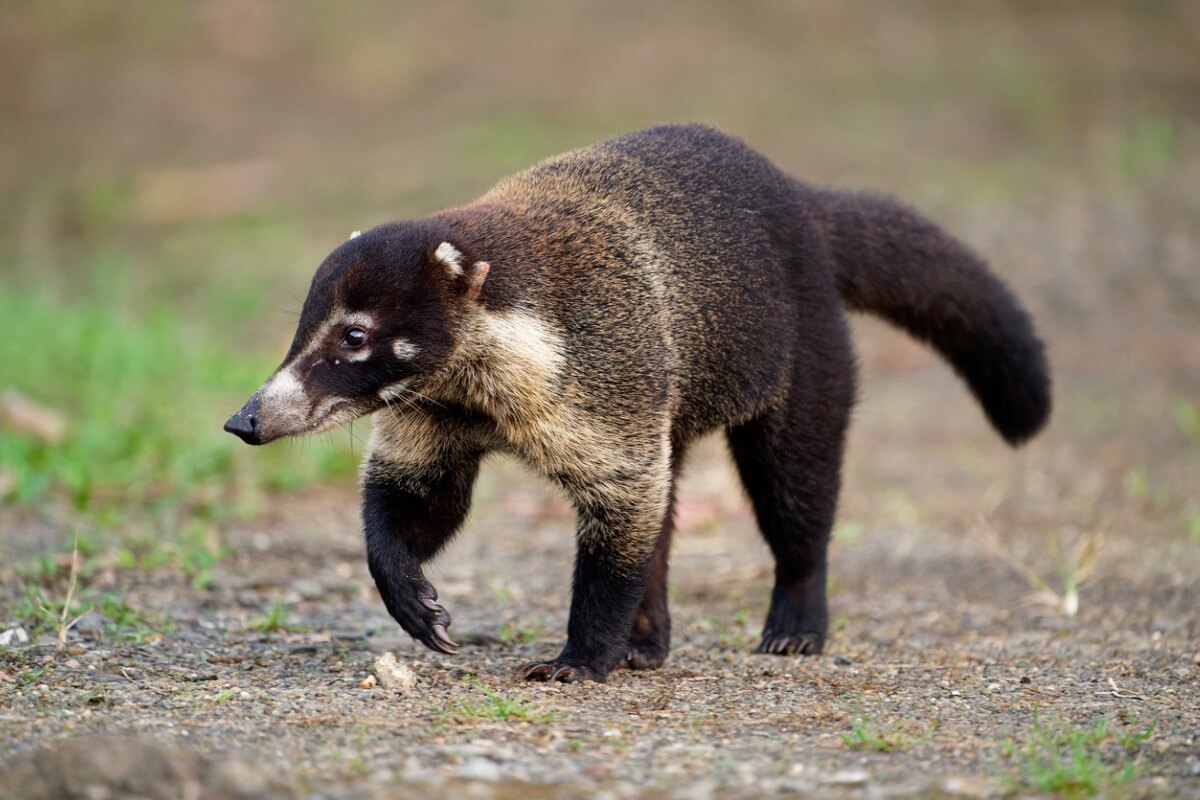
3. Ocelot (Leopardus pardalis)
Its name comes from the Nahuatl word océlotl, which means jaguar.
It is very difficult to see these mammals in the wild, as they’re rather elusive. In its habitat, the ocelot is one of the most important carnivores in its food chain, as it hunts in areas that jaguar and puma can’t access, feeding on populations of smaller species.
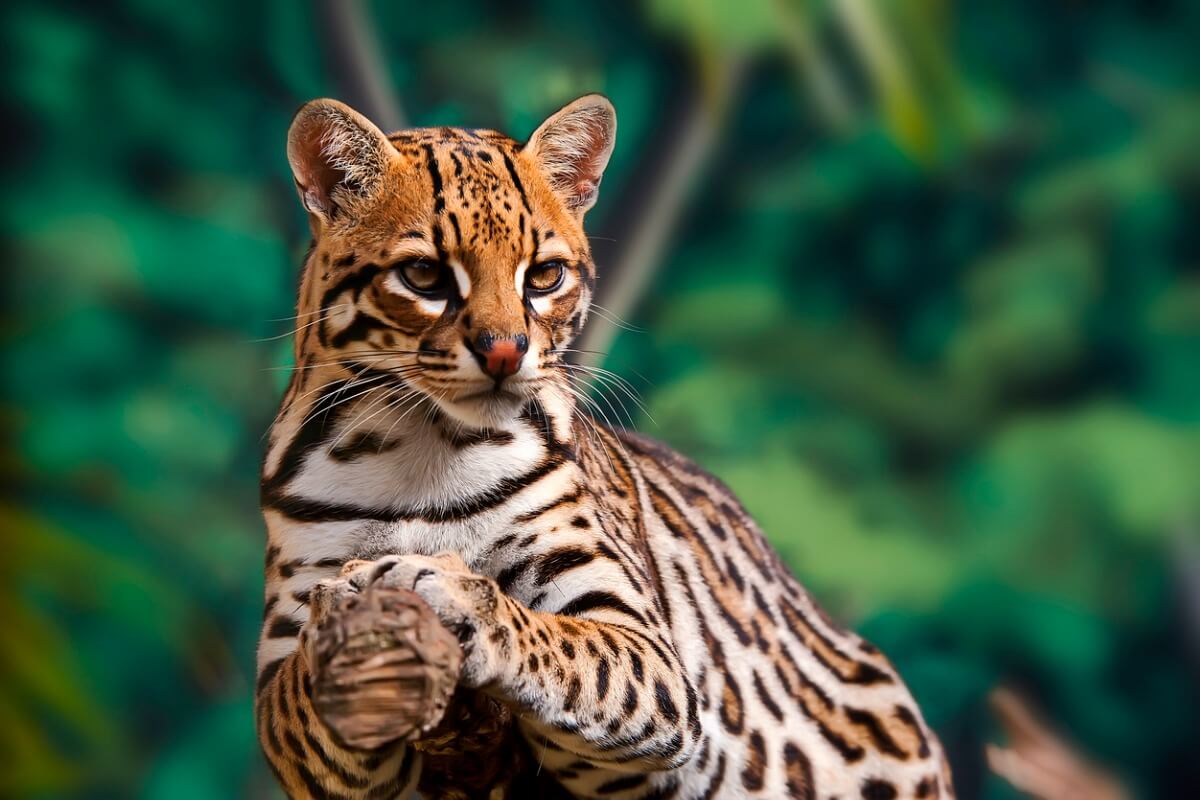
4. White-lipped peccary (Tayassu pecari)
Peccaries are artiodactyls found in dry deciduous forests, tropical rainforests, low shrub forests and agricultural areas of Costa Rica.
They’re also known as musk pigs because of their intense body odor. Peccaries are very vocal and can become aggressive in water disputes.
This species is considered endangered due to indiscriminate hunting and loss of habitat due to deforestation.
5. Three-toed sloth (Bradypus tridactylus)
These sloths, although they seem slow and sleep almost 20 hours a day, are very fast if they have to flee through the treetops.
Approaching them can be dangerous, as they can do a lot of damage with their long nails.
Sloths only come down to the forest floor once a week to defecate.
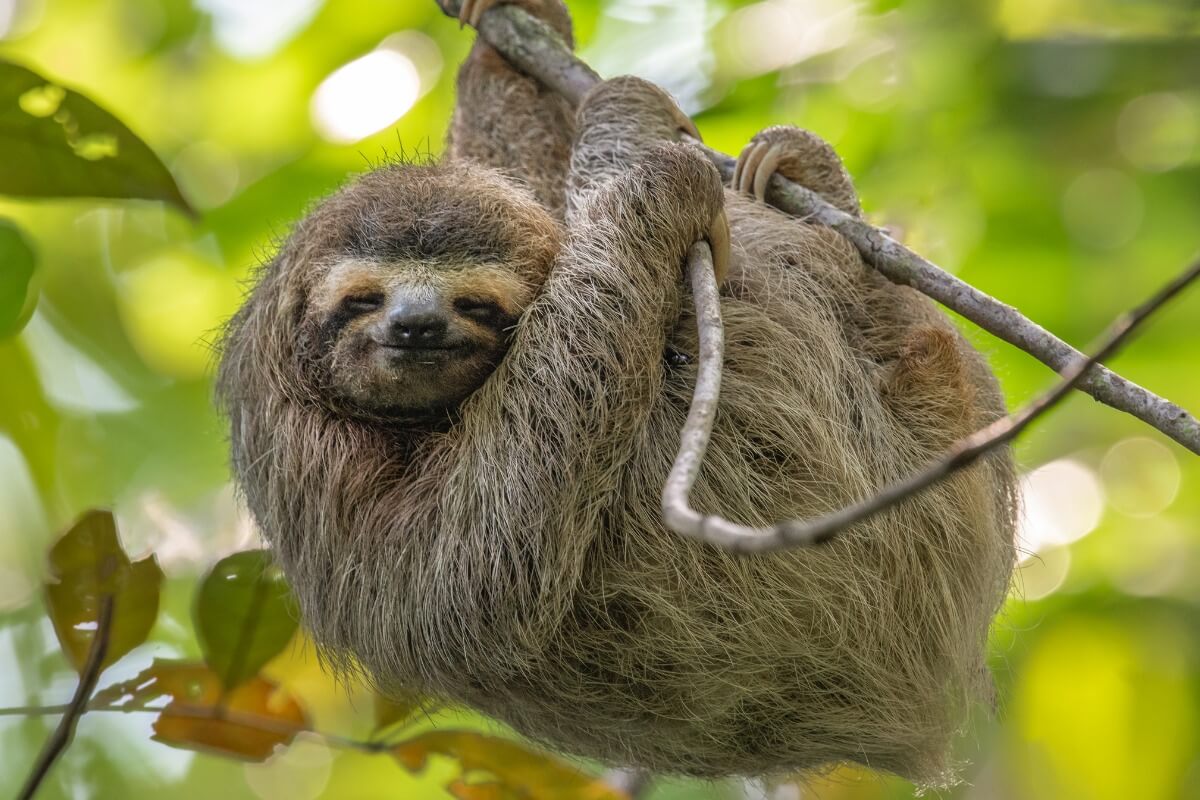
6. Common basilisk (Basiliscus basiliscus)
The common basilisk is also known as the Jesus Christ lizard because of its ability to run on the surface of the water.
Its hind legs are equipped with dermal lobes that it expands as it moves across the surface of the water, so that it increases its support surface and doesn’t sink.
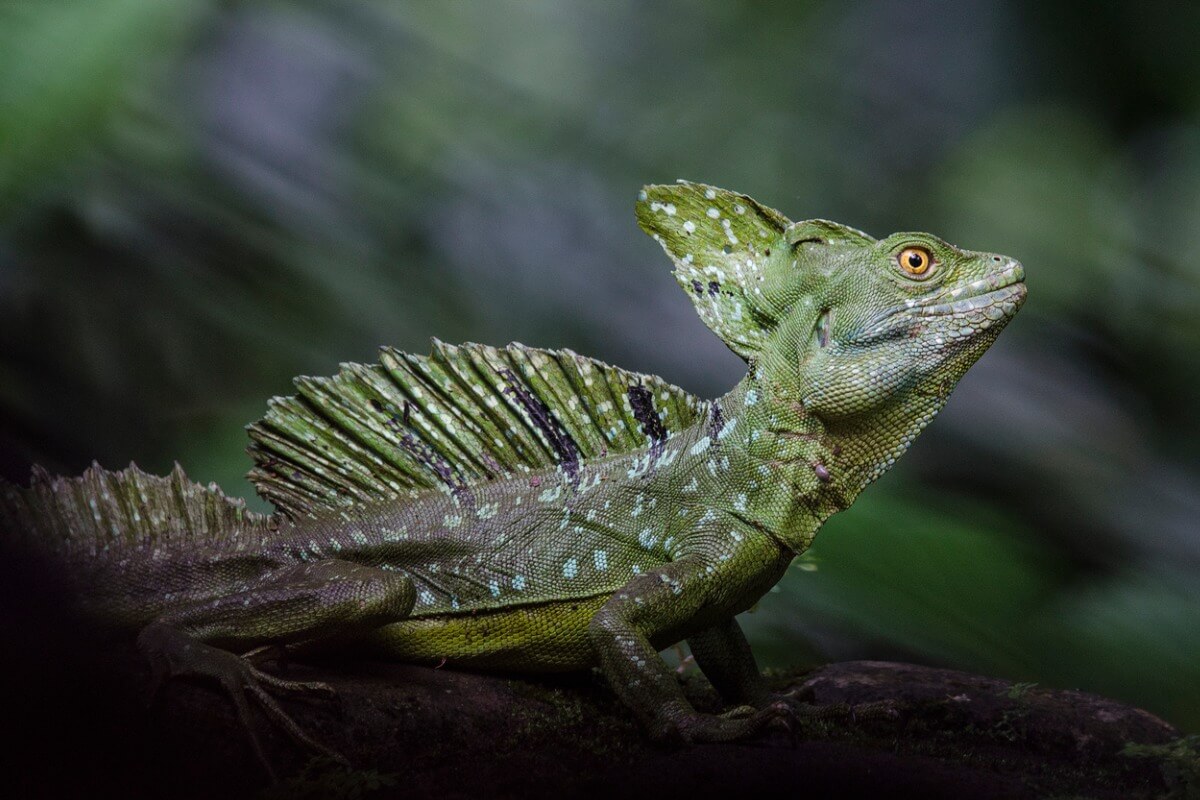
7. Rhinoceros beetle (Megasoma elephas)
The rhinoceros beetle is so named because of the long protuberance on its head, but it’s also known as the elephant beetle.
It’s quite big (15 centimeters, 6 inches) and lives in lowland rainforests. Although it’s almost bigger than a hand and the sound it makes when it flies is somewhat intimidating, it’s a completely harmless beetle.
8. Red-eyed tree frog (Agalychnis callidryas)
The red-eyed tree frog is an amphibian found in the rainforests of Costa Rica.
The intense, aposematic color of its eyes gives it a few extra moments to escape from predators, as its hue paralyzes them for a second before they attack.
The skin of this amphibian contains toxins, but they aren’t potent enough to kill a potential predator.
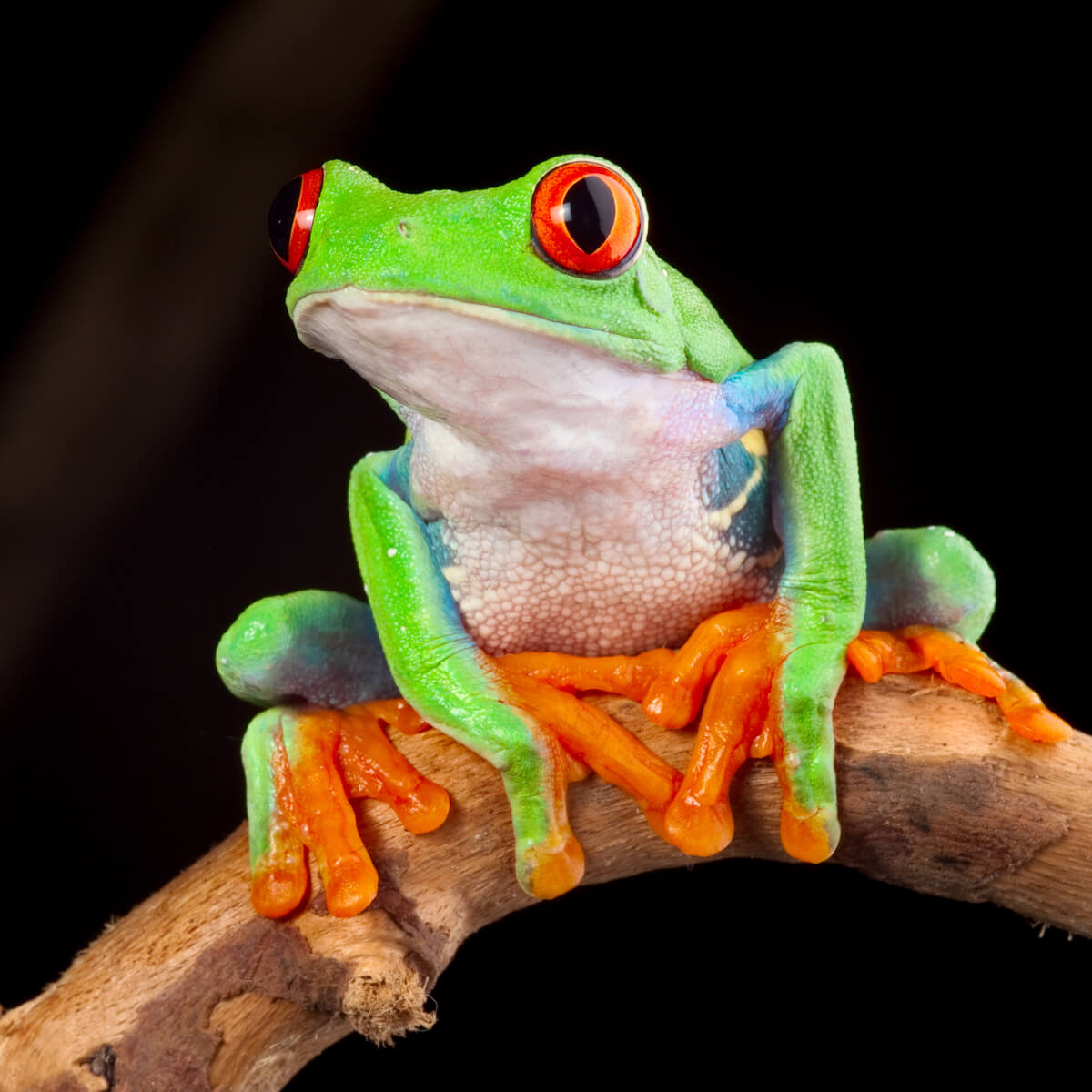
9. Quetzal (Pharomachrus mocinno)
The resplendent quetzal is one of Costa Rica’s most beautiful animals.
Even with its striking metallic green plumage, finding a specimen among the branches of the trees is a complicated task. In the pre-Columbian civilizations of Mesoamerica, the quetzal was considered a divine bird associated with Quetzalcoatl, the feathered serpent deity.
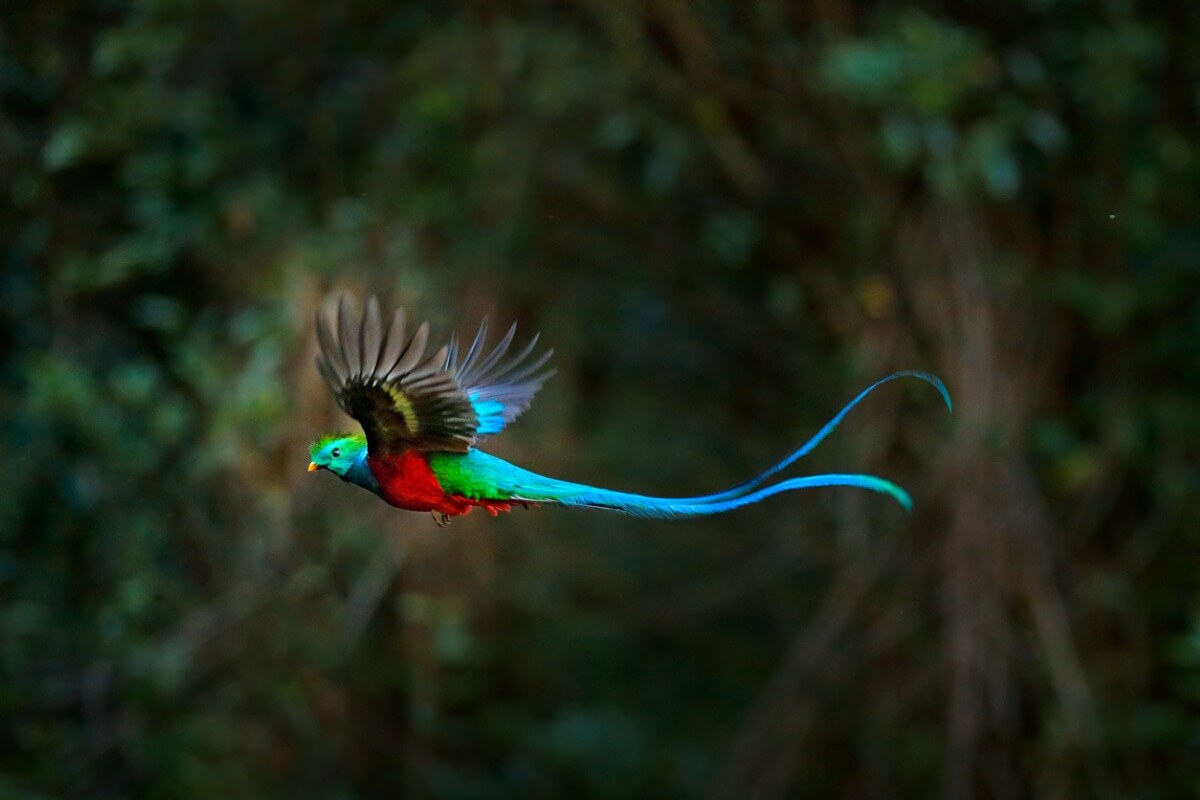
10. Howler monkey (Alouatta palliata)
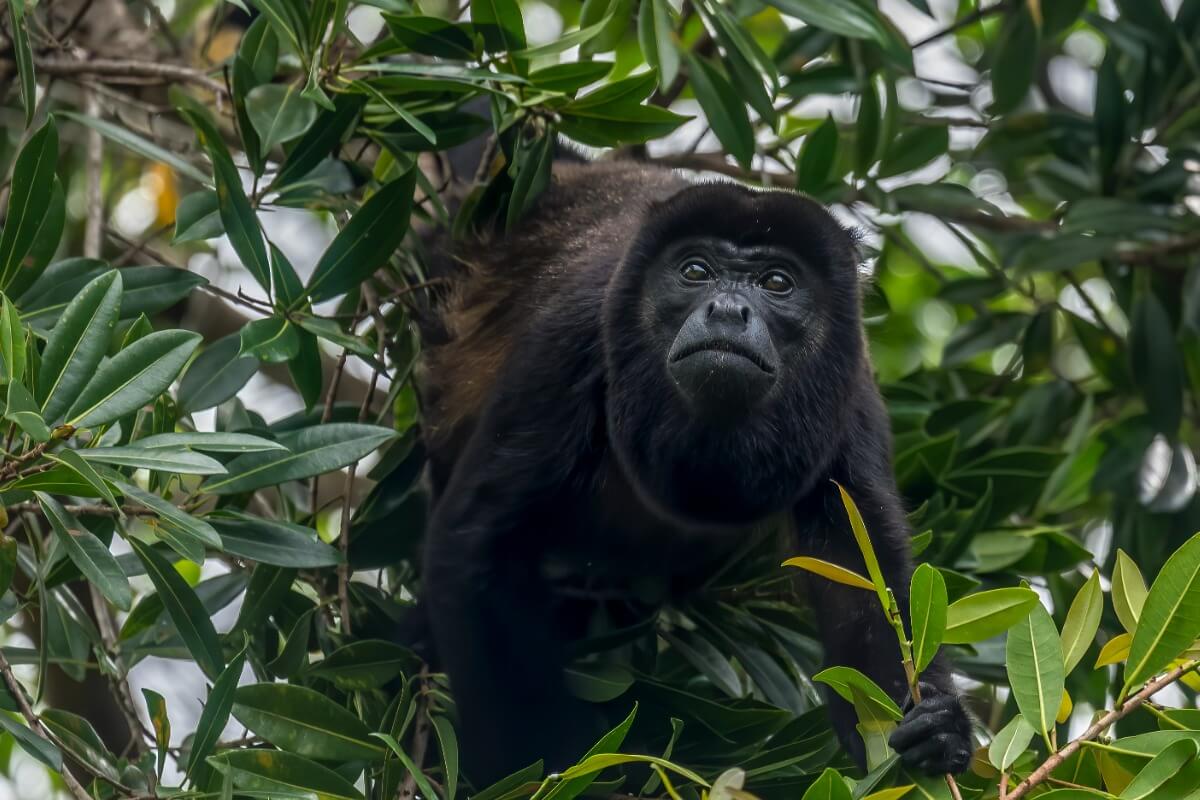
11. Fiery-throated hummingbird (Panterpe insignis)
This hummingbird is endemic to Costa Rica. Its normal color is dark green, but when the sun shines on it there is a display of iridescent shades that spread across its chest. It lives in high mountain areas, above 1400 meters, and makes high altitude migrations throughout the year.
https://www.youtube.com/watch?v=eplNNZqRjbE
12. Green turtle (Chelonia mydas)
In Costa Rica, you can see five of the seven species of marine chelonians that inhabit the world, including the green turtle. This large turtle is distributed in tropical and subtropical seas. They’re currently in danger of extinction due to habitat degradation and unsustainable fishing, so it’s a protected species.
The list of the most beautiful animals of Costa Rica could go on and on, and include all the species that populate the country, but they wouldn’t even fit in a dozen of these articles. So, if your curiosity has been piqued, we encourage you to continue investigating. All living beings have some characteristic or another that makes it quite extraordinary, and so we encourage you to find out more about these incredible creatures.
All cited sources were thoroughly reviewed by our team to ensure their quality, reliability, currency, and validity. The bibliography of this article was considered reliable and of academic or scientific accuracy.
- INBio – Panterpe insignis. (s. f.). INBio. Recuperado 11 de octubre de 2021, de http://www.crbio.cr:8080/neoportal-web/species/Panterpe%20insignis
- Seminoff, J.A. (Southwest Fisheries Science Center, U.S.). 2004. Chelonia mydas. The IUCN Red List of Threatened Species 2004: e.T4615A11037468. https://dx.doi.org/10.2305/IUCN.UK.2004.RLTS.T4615A11037468.en. Downloaded on 11 October 2021.
